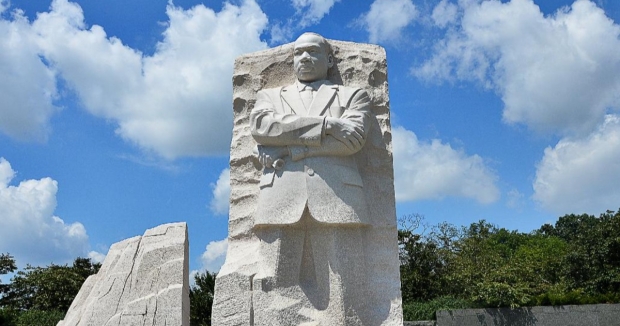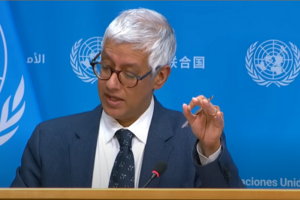Martin Luther King Jr.'s Value of Nonviolence Shared by Democrats and Republicans


This viewpoint is from a writer rated Center.
Monday is Martin Luther King, Jr. Day. Of his many profound legacies, one is his longstanding commitment to political nonviolence to achieve social change.
That goal to avoid political violence may seem threatened in America today, but surveys suggest Americans still side with nonviolent political actions.
Still, surveys also show some recent troubling backsliding toward greater acceptance of political violence, so vigilance is warranted to make sure majority views against political violence remain strong.
The Martin Luther King, Jr. Research and Education Institute at Stanford University provides a detailed encyclopedia of his life, including his commitment to nonviolence. King’s journey toward nonviolence began as a freshman at Morehouse University. He then became more deeply acquainted with the work of Mohandas Gandhi while in seminary. He first used nonviolent practices during the 1955 Montgomery Bus Boycott, and he continued using nonviolence throughout the Civil Rights Movement.
Some other figures advocated for more violent means of achieving racial equality. Yet King’s commitment to nonviolence remained strong until the end.
In our present day, Americans still oppose political violence, though some trends are concerning.
The Washington Post and ABC released a poll this past Friday showing that nearly 90% of Americans – including 80% of Republicans – opposed the breach of the Capitol. This result nearly exactly matches a survey from PBS Newshour released a week earlier.
And on the racial justice topics that King cared about so deeply, Gallup found in August that both white and black Americans strongly believe nonviolent protests can help the situation of black Americans, but violent protests hurt the cause of black Americans. In all cases, over two-thirds of white and black Americans agreed.
More generally, various researchers are increasingly studying “lethal mass partisanship", including willingness to inflict harm on political opponents.
Before the election, these researchers found that more than half of Democrats and Republicans believed there would be no justification for violence if the other side won. Thus, a majority in both parties are aligned with King in favor of nonviolence.
Only a minority of 15-20% of each party thought there would be “a lot” or a “great deal” of justification for violence, a decided minority.
Yet as the authors noted, justification of political violence is also higher on the political extremes among those who consider themselves “very liberal” or “very conservative.” They also found a notable worsening in attitudes since 2017. Between 2017 and 2019, the share of Americans reporting they would feel at least “a little” justified with political violence against the other side rose by nine percentage points.
Finally, a couple of the authors found that violent events tend to increase public approval of more violence, which would be a troubling outcome of the Capitol breach.
Even though justification of political violence is a minority position, any organized minority comfortable with political violence is a cause for concern.
Realizing King’s vision of a nonviolent political future will not be easy, but there are key levers. For instance, the researchers focused on lethal mass partisanship note the importance of leadership at all levels strongly renouncing violence among their supporters.
And while both left-rated and right-rated sources are reporting questions about whether a few Republican members of Congress coordinated in some way with protest organizers before the breach, no member of Congress has explicitly supported the Capitol breach since it occurred on January 6.
This level of Congressional unanimity against political violence on Capitol Hill helps uphold Dr. King’s legacy of political nonviolence. Political nonviolence is a majority position in America today.
Yet nonviolence is not inevitable. Dr. King had to advocate for it tirelessly during the Civil Rights Movement. Americans today must make it clear that nonviolence remains the only acceptable means of political interaction.
James D. Coan is a depolarization strategist who develops approaches to reduce U.S. political polarization at scale. His interests include social psychology and mass communications. He coordinates an initiative on AllSides that features news and human-interest stories designed to unite, and he volunteers for Braver Angels in various capacities. Professionally, he’s a strategy consultant for the energy industry. James has a Center bias and can be reached at jcoan@braverangels.org.
This piece was reviewed and edited by AllSides.com Managing Editor Henry A. Brechter (Center bias).

May 21st, 2024


May 16th, 2024

May 16th, 2024